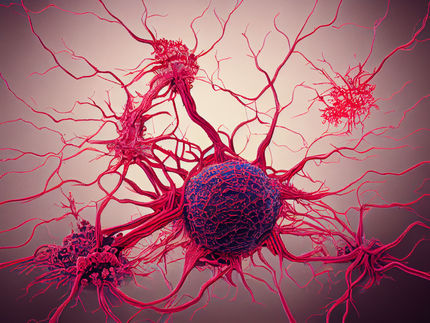Joint research on the next generation of sun screens
The German Cancer Research Center (DKFZ) and Beiersdorf are cooperating on the development of innovative sun protection products
Advertisement
Experts predict that climate change and the associated increase in the number of hours of sunshine will lead to a further increase in skin cancer cases. This is particularly to be expected for non-melanoma skin cancer, which is diagnosed around 210,000 times in Germany every year. This term covers squamous cell carcinomas and basal cell carcinomas. Both are considered to be the result of harmful sun exposure. They mainly develop on the skin's so-called "sun terraces" that are intensely exposed to UV radiation, such as the forehead, nose or ears.
Consistent sun protection can prevent the development of cancer – but what actually happens in the skin when we forget to apply sunscreen? Which molecular processes are triggered by sun exposure in the skin – and how can they possibly be reversed? How does the skin regenerate after sunburn and can it be specifically supported by special substances? And do people with different skin types also need different sun protection that takes into account the respective biological properties of the skin cells?
The DKFZ and Beiersdorf will join forces to research these innovative issues in the future. A newly signed research cooperation agreement has now set the seal on the collaboration, which is initially planned for three years. The aim of the two partners is to develop the next generation of sun screens and care products that support the regeneration of sun-damaged skin in jointly selected research projects. In the best case scenario, this could prevent the development of malignant cells.
Furthermore, the two partners will develop joint campaigns to educate people about the correct use of sunscreen and set up a research clinic for individualized skin cancer prevention at the National Cancer Prevention Center.
"Research into cancer prevention is one of the DKFZ's core tasks. In the research collaboration with Beiersdorf, we are taking a dual approach: on the one hand, we are focusing on molecular strategies such as the development of agents that prevent healthy cells from developing into skin cancer as a result of UV damage," says Michael Baumann, Chairman and Scientific Director of the DKFZ. "On the other hand, we want to support people in protecting themselves as best as possible from harmful UV radiation."
"I am very pleased that our successful collaboration with the DKFZ is continuing. Since 2008, we have been able to decode many secrets of the skin in various projects and contribute to the rapidly growing body of knowledge around skin aging and maintaining skin health," explains Gitta Neufang, Chief Research & Development Officer at Beiersdorf, adding, "In the more than 140 years of our company history, sun protection has always played an important role. Now, we want to use our expertise and increased education to make an important contribution to counteracting the increase in skin cancer."
The DKFZ and Beiersdorf are funding the projects for three years with a total of €3.6 million. The two institutions have been closely linked for many years through joint research projects. The cooperation in the field of skin cancer prevention and innovative sun screen is a logical continuation of the successful collaboration.




























































